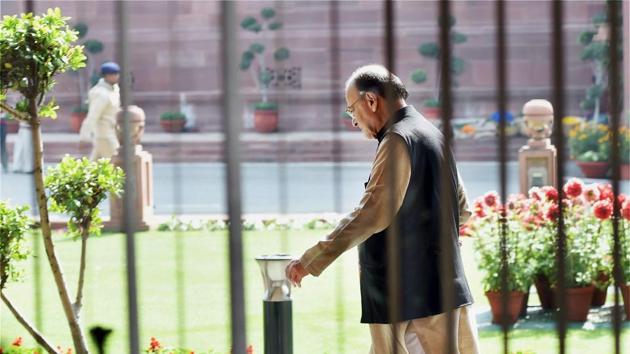Budget 2017: Revamp FRBM Act to balance the budget
FRBM Act was brought in 2003 and was implemented since 2004, with the primary goal to manage the fiscal deficit, as fiscal deficits were considered major factors affecting the economic growth by contributing to inflation and increasing the debt burden.
Present government, after the budget announcement of 2016, constituted a committee under NK Singh to review the existing Fiscal Responsibility and Budget Management (FRBM) Act. The committee presented its report to the government on January 23, 2017, which is not available in the public domain, but it is expected that we would see some of the recommendations of the committee in the budget.

FRBM Act was brought in 2003 and was implemented since 2004, with the primary goal to manage the fiscal deficit, as fiscal deficits were considered major factors affecting the economic growth by contributing to inflation and increasing the debt burden. With that in view, the then government set before itself ambitious targets, such as eliminating revenue deficit by March 2009, reducing fiscal deficit to 3% of GDP by March 2008, etc. But these targets were breached more often than not. So it was in fitness that the Act be reviewed after 12 years of its operations and have targets which are prudent and help achieve fiscal consolidation.
Fiscal deficits can be contained through greater resource mobilisation or by reducing expenditure. India has followed both the methods with different intensities. But resource mobilisation has not seen much improvement over time; India has made limited progress in increasing its tax capacity - India’s tax to GDP ratio barely increased from 15.25% in 2004-05 to 17.5% (est.) in 2014-15. Economic survey 2016 did point that out to say that India taxes and spends less than OECD countries and less than its emerging market peers. It also mentioned that India’s spending to GDP ratio (as well as spending in human capital, i.e., health and education) is lowest among BRICS. This position has remained so without much improvement. Need to have a rethink on the FRBM targets, therefore, was imperative.
In the above context, it is also important to revisit the objective of reaching fiscal target of 3%. One does not know how the figure of 3% was arrived at in India. This magic number, some say, is reminiscent of the European Union (EU) formation in 1992, when during give & take 3% was arrived at and member countries were asked to limit their fiscal deficit to 3% as one of the pre-conditions for joining the EU. But even the fiscally prudent countries in the EU struggled to achieve it – France breached it for seven years and Germany for five during 1999-2011.
Some may point out to drastic fall in deficits from the highs of 9.6% of GDP in FY 2002-03 to the present level of 3.5% in 2015-16 as an achievement of the Act. But, it may be pointed out that the reduction has largely been on account of expenditure reduction in critical sectors of the economy, as mentioned above.
In the above background, it was imperative that the FRBM Act be reviewed. It is hoped that the NK Singh committee, which had eminent and experienced people, have given some useful suggestions which can rationalise the expenditure and suggest methods to improve the tax capacity. The government should also look at the recommendations of the expenditure committee report in this context and the tax administration reform commission report, and make sure to put fiscal consolidation on a firm footing. We are in for some testing times in the international arena and that is not very assuring for trade and external investments.
Sanjay Kumar is senior director with Deloitte Haskins & Sells LLP





